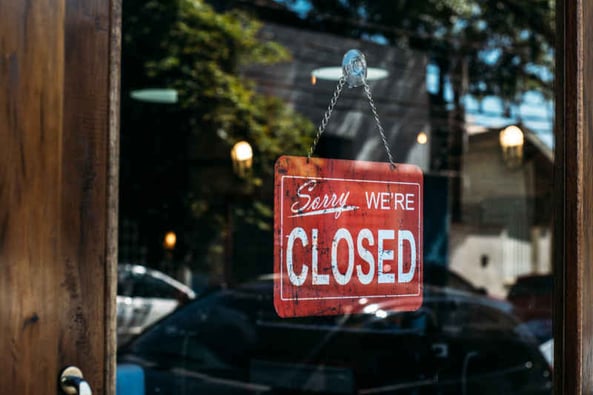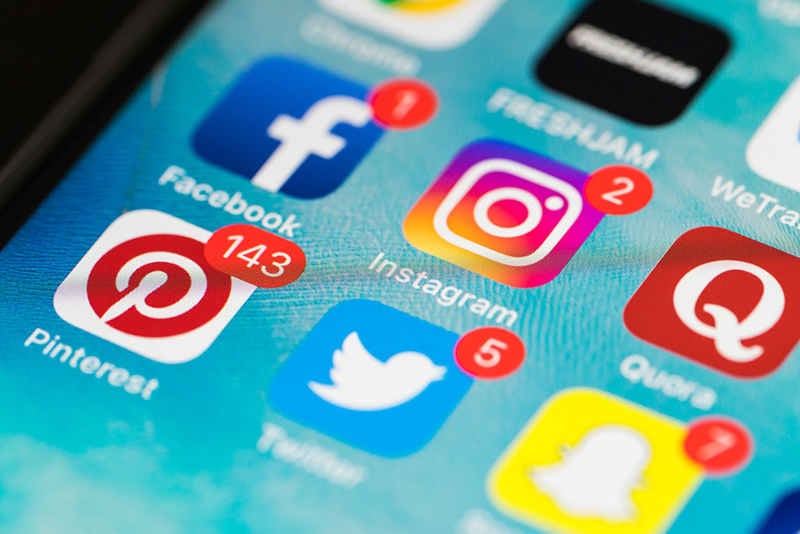Top Tips from Influential Leaders to Help Business Succeed COVID-19
- Home
- Top Tips from Influential Leaders to Help Business Succeed COVID-19
The Best Way to Finding Your Silver Lining in a Dark Pandemic Cloud

In our lifetime, never have we seen such a thing, as the COVID-19 pandemic. With copious amounts of fear, anguish and confusion, plus the devastation; it has been leadership figures we have looked to for the hope of answers and direction. What we sought, may not necessarily have been resonated through our current world leaders, yet we can be sure to turn to the world of business to see what impact COVID-19 has had and what we can learn from it.
‘Be a leader with much enthusiasm and clear communication’
The Leaders Council of Great Britain and Northern Ireland have harnessed the importance of unearthing the essence and unified traits of leaders within their industries. Through their podcast episodes they share with us a network of some of the most influential figures, obtaining insight on how the future of Britain’s business operations and growth will be structured and revolutionised for the upcoming generation.
‘A podcast for the people who run the country and the people who keep the country running.’
As we delve into a podcast hosted by Matthew O’Neill, interviewing CEO Clwyd Probert of Whitehat SEO alongside Lord Blunkett Chairman of the Leaders Council, we begin to hear what it takes and means to be an influential leader. See how good leadership is the backbone to transporting your business and team to success, overcome obstacles and also navigate through these murky and uncertain times of Coronavirus.
How has COVID affected business?

Photo by Kaique Rocha from Pexels
With much needed measures put in place to slow the spread of the virus, to save lives and help preserve the public health service; it has had big implications for our economic activity and is taking its toll. We have had wars, revolutions and recessions but never has the global economy come to such an immediate standstill as with the Coronavirus epidemic that is upon us; and multiple businesses have not gone unscathed.
‘Have courage and confidence’
Within The Leaders Council podcast, when asked what his message would be to small businesses at this time, Lord Blunkett urged for the people of Britain to ‘have courage and confidence.’
“For it is those who will be the last ones standing and thrive, and they are to do so by taking full advantage of all support available to them”.
Lord Blunkett also affirms that we need to speedily get back to action but to be aware and most importantly adaptable; this will enable us to start the repair and rebuild of industries and the economy.
Lord Blunkett highlights the importance of this, by mentioning that the economy is one of the main connecting components through business sectors and this creates what he calls a ‘chain reaction effect’. If we only focus on some industries, any left neglected can bring about what he deems as ‘the skittle effect’. This is where, like in a game of skittles, unrelated pins can fall over that were not the initial focus of your aim or even the actual path that the ball travelled. Basically, seemingly unrelated industries can have a diverse effect on one another if not cared for and supported through solid leadership, focus and structure.
‘Hein sight is wonderful thing and we all at times, see signs that we should adhere to but sometimes choose to ignore.’
When commenting on how COVID had affected business operations Clwyd Probert of Whitehat SEO mentioned that :
‘though there has been a lot of suffering and pain in the business community, nothing can compare to those who have fought for us on the frontlines and others who have stepped up to be keyworkers across various business sectors’.
We know that many have painstakingly risked their lives to save others and for that we are truly grateful, and alas, sadly families have endured the immense pain of losing their loved ones. Leadership is not a straightforward task and it is easy to say that if response times were quicker or warning signs had been heeded, that we may have eased some of the devastations to humanity and the economy. Fact is, we can only do the best at the present time with the current resources to hand.
Never one to dwell on the doom and gloom Clwyd Probert hinted that though many industries have suffered and may continue to do so in the future, we can start to put a positive spin on the impact COVID has had. Specialising in lead generation, customer acquisition and client engagement Clwyd suggests, to turn it around we have to analyse how it has affected the way in which we now interact digitally with businesses. Once loaded with this newfound information, companies can then harness it and implement their knowledge to connect the correct product and/or services to prospective consumers.
Changing the way we interact digitally, forever!

When the lockdown was announced, how many of us instantly turned to the internet to use search engines, apps, and streaming services upon our digital devices? Unless living totally off the grid, I would say the overwhelming majority of us participated in that act, and according to Open Vault Broadband Insight Report:
‘The first quarter of 2020 saw increased broadband consumption rates from 273.5GB to 402.5GB. That’s a 47 percent increase from the same period last year’
This is an astronomical increase and has created a generational group now described as ‘power users’, which refer to those who are consuming over 1TB of data. That amount of data is huge and indicative of the way in which we now access products and services digitally. The COVID19 pandemic has changed our digital consumption in such a substantial way, that it will probably be permanent! No way we hear you say, well let’s take a glimpse.
During this time many of us have had to work remotely from home to maintain income, home school our young online to uphold education levels, and have digital doctor appointments and web-based diagnosis for health preservation. We have endlessly binged streaming services for our entertainment and used relevant apps and online services teamed with device technology to stay connected with the ones we love and cherish. All this, and we haven’t even begun to mention the time spent ordering goods online, food through takeaway apps, or scrolling through social media platforms! If you didn’t think you were digitalised or digitally reliant, you can now see that everything we have been doing or surviving with through this period is somehow directly linked to, or reliant on digital consumption. Clwyd is extremely grateful for his line of work and points out:
“With businesses being forced to withdraw from the high-street there is now this digital focus and businesses need to be seen and found online.”
Unlike the a parade of shops on a main road where giant brands are highly visible, for smaller businesses, with the right tools and knowledge, the internet is an even playing field that can be used to leverage its resources and produce a good return of investment.
For consumers, now more than ever before, everything they want and need is at their fingertips! Whether it be through a review, blog, podcast or social platform, consumers are investigating, connecting, and making wiser buying decisions through digital avenues. To put this into a visual perspective, take a look at the infographic created by Infinera combining statistics of COVID data consumption.

https://www.infinera.com/blog/are-you-part-of-the-4-comma-club/tag/optical/
Strong leadership will prevail

With vast data consumption and consumer interaction, this is precisely the type of behaviour businesses now need to tap into and where leaders need to be extra effective and forward thinking in their approach to appeasing this new wave of custom. Having a digital presence has proved pivotal to survival at such a time, and with the unknown predictability of further outbreaks, new pandemics and lockdowns; further digital advancement and integration will be sought. But are you ready to lead, be flexible and move with the times?
‘The essence of great leadership is influence not authority’
To project manage this influx at such magnitude, business leaders and managers will need to be visionaries for their teams. Even with great site optimisation, a sound inbound marketing strategy, promotional tools and content (such as blogs, podcasts, and social posts) to reach your ideal buyer personas. As leaders you will need a specific skillset to motivate and support your team to make this all achievable.
In the podcast interview, Matthew O’Neill questioned both guests on what leadership meant to them and how important leadership is at this time. This is what Clwyd Probert had to say:
“To me, within an organisation, a leader is somewhat of a visionary. They are there to establish the vision and synchronise the direction for where they will be in 3, 5 and 10 years’ time. Their duty is to then communicate these effectively and in their entirety, and to ensure solid implementation further down the team, so that it be adhered to by all. Now, a manager is a leader within a smaller group and leads with a slightly different view. Managers need to be able to execute the vision and remove preventative obstacles for the team. True leaders are less of a doer and tend to get in the way when ‘doing’, so need to hire likeminded people who can become facilitators.”
Reinforcing that response and commenting on both public and private sectors, Lord Blunkett added:
“For a leader, delegating is a good thing! Those who try to pull too much into themselves generate a great bottle neck, and in turn create a great failure of trust. For their teams this then produces an inability to show their worth and demonstrate their unique capabilities. To lead you have to get a grip, observe the difficulties and understand the obstacles; then give direction with confidence to continue. Rapid response is needed, we need good teams in times of crisis and with fine tuning you can then come back with a reinforced team.“
As we can see, with clear vision and implementation you can lead your business team to success. Yet it is also important to delegate to alleviate pressure, but to also allow your team to flourish and develop within their roles. Both gentlemen also agreed on some of the other crucial components needed to be an influential leader for business.
|
INFLUENTIAL LEADER TOP TRAITS |
|
‘Great leaders don’t tell you what to do, they show you how it is done.’
Another important point raised by Lord Blunkett is that within business, to be great, you have to know what great is and what it isn’t! He recommends that the best way to do this:
‘As we are doing through the distribution of the podcast, surround yourself with those who are exerts within their industries.’
This will enable you to learn directly from the greatest and most influential entrepreneurs, business directors and leadership figures both in Great Britain and beyond.
How should we lead now?

Photo by Stephan Henning on Unsplash
‘Nothing great was ever achieved without enthusiasm’
We have now discovered the true traits and essence of what it is be an influential leader, now how do we put this into practice to get ahead in business. Clwyd Probert gives his own stance on leadership style.
“With there being a wealth of unique and durable personalities, it pretty much can determine the way in which you lead. Whether you dwell on the social interactions or sternly focus on the bullet points and deliverable, those who report to or work with you, sometimes aren’t the same. So at some point, as a leader, you have to be aware and understand your team. This will include their own personalities, how they communicate, and how they absorb and present information. Know yourself and be aware of your own make up, and be open so that you can do things most effectively. Always keep checking in with your team (it doesn’t have to be long meetings) to keep your finger on the pulse and know if there is anything preventing them from signing off on goals and targets.”
Clwyd’s company personally follows a methodology called Traction (by Gino Wickman) which allows them to implement sound structure and formality in running the business. He further added:
“I have worked with many great leaders with a range of personalities and we can honestly learn from them all. What I found was, regardless of their circumstances, what was most inspiring and empowering was their personality, sheer drive and overzealous enthusiasm towards what they were trying to achieve. But to pinpoint one value was definitely enthusiasm! The enthusiasm, above their vision, or any particular techniques or processes that they chose, it was the way in which they communicated their enthusiasm.”
We can see that moving forward, not only do we need to have plans, processes and strategies in place; we need to lead from the front and do it with as much enthusiasm and gusto as we can muster. With this, we can push onward and meet the challenges of the future head on.
What's your silver lining?

Photo by Djalma Paiva Armelin from Pexels
The focus of The Leaders Council podcast interview is to extract the secrets from leaders so that we can learn and implement, to discover a silver lining for UK businesses through this dark pandemic cloud. Times have been bleak and even practised leaders have admitted it has been tough, but there is light at the end of the tunnel. Even though there have been jobs lost and businesses closed, in times of crisis we have to be prepared to go further than we ever have before. If we act now, pull on resources and embrace change, we will start to see a brighter future for all industries.
‘Sometimes when things are falling apart, they may actually be falling into place.’
Clwyd tells us what his silver lining has been and how we can learn from being thrust into a predominantly virtual way of business.
“Due to the impact of COVID19, we decided to not renew our office contract but weirdly enough, the pandemic has brought the team closer together! Even though people talk about the loss of comradery around the water cooler so to speak, in truth, in the office heads are usually down and getting on with work so there is less social interaction. But now with a virtual office environment, zoom meetings are enforced and although there are still strict schedules and deadlines; you are face-to-face and we are enquiring how people actually are and how they are dealing with things. With this unified event, it has seemed to humanise interaction, more than when physical office space or meetings were in place. So being virtual is not as bad as people think, you can manage, relate and engage virtually. We are extremely lucky that we are in an age of fast broadband, computers and video calling, if this was a few years ago maybe I wouldn’t be so upbeat!”
Clwyd also mentioned, that with virtual teams he had experienced more productivity from them and the wellbeing of your team matters most when wanting to produce the best results possible. A happier team is more productive which equates happier clients. It is not always easy to manage and motivate teams virtually but if companies can embrace the positive, streamline management, and also their processes’ and systems; they will be able to reap the benefits.
The best thing for all businesses at this time, is to get solid inbound marketing strategies in place, create quality content for distribution and consider site audits and SEO improvements. This way, whether you are currently virtual or new to it, you are on the right path to success. So be brave and step into the murky cloud to bathe in the new light of a new dawn and consider your silver lining and the possibilities it could bring to you, your team and prospective clients.
What is the new normal?

Photo by Ivan Bertolazzi from Pexels
With social distancing and hygiene measures set to remain in place for the near future, the way in which we interact and conduct business is set to be changed indefinitely. Routines will change and adaption will require transition, for our work environments, home and social lives have been altered dramatically more or less overnight.
This adjustment has been truly overwhelming and whilst there has clearly been a physical impact of COVID 19 there are many mental health issues that are now slowly emerging. It is now important, that through both personal and business communications we need to express kindness, patience and be risk aware.
It has shown us, is that the digital era is stronger than ever, and although we have been at our furthest we actually have never been closer. We have spent more time in finding our passions, checked in with each other more, and acquired new knowledge, habits and behaviours. The pandemic, alongside lockdown and its effects, has made us have to rethink, readjust, resize and repurpose.
Moving forward, consumers are now being encouraged to increase their digital usage and experience. As business’ we need to adhere to this new need by building stronger relationships, providing quality products or services and better accountability overall. Virtual and digital will now replace physical wherever possible, and instead of exploitation we need to care for our prospective customers and be able to deliver on their needs and think of long-term value. Lord Blunkett counsels us for the future;
“For the future, it will be a different world, we will need to be creative and learn from personal experience and from those around us in various business sectors. Rather than depending on the vulnerability of global supply chains, we will need to think of more creative ways in using local suppliers and building links within sectors to ascertain sustainability.”
This pandemic may effectively allow us to set the reset button in terms of the way we think, act, react and interact. So business leaders need to develop a far-sighted view and build the necessary steps into their strategies to help shape the business community beyond COVD19.
Security for the future

Photo by Adi Goldstein on Unsplash
‘Safety starts with awareness, and awareness starts with you.’
For the future, in order to remain safe, we need full and clearly defined plans that address unique events such as further pandemics, biological and cyber warfare. Lord Blunkett elaborates on the way in which we can approach this.
“Human nature kicks in, and in reality you deal with what you’re faced with at the time. So even though you plan for eventualities you are never really truly prepared, and at times we can take our eye off the ball. So we need to look at what has happened, what is happening and what may happen in the future. But a cyber pandemic is what may loom as we move ever deeper into technologically advanced systems.”
With the move towards a digital way of life, the increase for Cyber security is fundamental. As there will be a surge in online appearance for both personal and business circumstances, there will be added vulnerability coupled with an ever changing technological landscape. Businesses will need to think differently on how to combat both, in an effective, dynamic and sustainable way to keep themselves and customers safe.
Summary
On hearing the thoughts and feeling of two valued leaders within the business community, we have uncovered the silver lining to this pandemic and realised our way forward through the dark clouds. Both guest delivered the importance of strong leadership and what impact it can have for you and your business for the remainder of 2020 and beyond.
‘Great things are not done by one person, they’re done by a team of people.’
Below we have given you a few pointers to act as a guideline for helping leaders strategize for the future:
Plan for the unthinkable- the unthinkable has happened, so implementing scenarios into your strategic planning process from this point forward will make sure that you minimise risk and allocate resources where necessary.
Watch and wait- the path ahead is uncertain, and there will be many shifts in various directions across sectors and markets. Rather than have hasty and impulsive reactions, scan, monitor and identify where and how your business needs to responsibly and accurately respond.
Be flexible and understanding- in this now ever-changing environment, you need to be flexible and understanding when encountering what may be challenging circumstances. Typical presentation may not be of hard facts and figures as is usual in business; which means you may have to make difficult decisions based on intuition, intellect and integrity alone. Do not be unyielding in your approach to change, though it can be uncomfortable at times, change is the only constant.
Trust in your team- trust is an essential human emotion and provides safety and stability. Do not deprive your team of this and jeopardise their opportunity to expose and develop their unique abilities. Be an example and open up, show support, hold regular check in meetings and above all be approachable. This will allow for your team to see and respect your vulnerability, and in turn be transparent with you.
So lead with courage, vigour and determination. All the while, learning from this experience to propel you to do better and provide the best, establish healthier synergy between both private and voluntary sectors and in having an increased awareness of social responsibility. Response time will be critical and you may receive legitimate criticism that can be channelled into positive outcomes, but to be an influential leader, it is all about getting the balance right.




